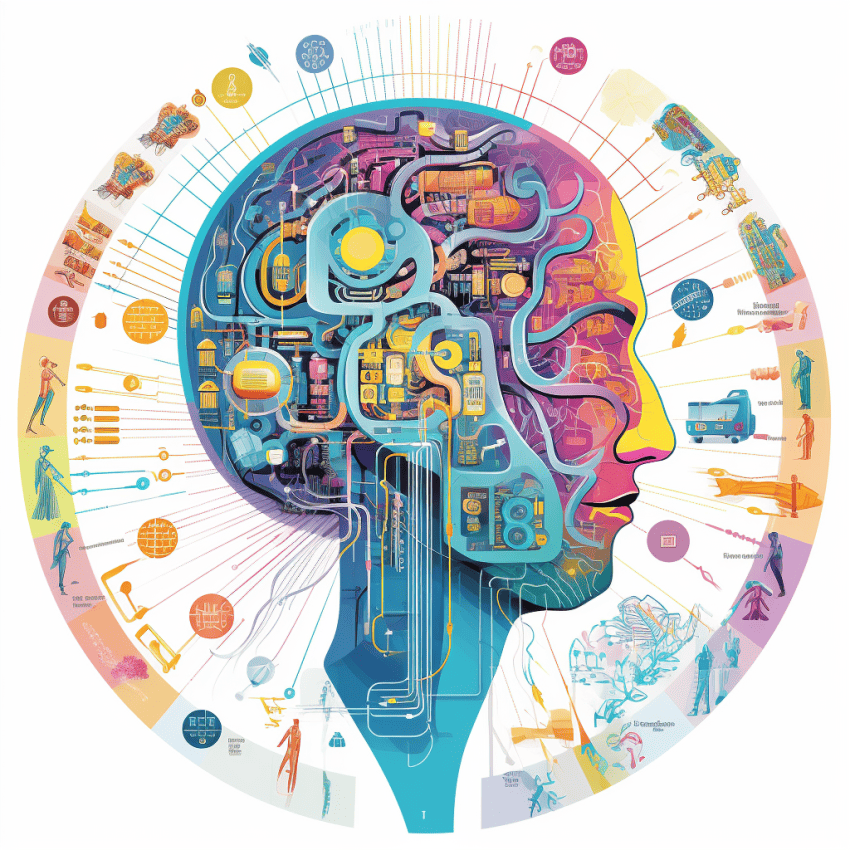The world of technology is evolving at a breakneck pace, posing a challenge even for experts in the field. We spoke with local resident Jenny Greenleaf to discuss her thoughts after reading our most recent article on the Governor’s AI Task Force. With a rich background in tech, including her time at Apple’s Advanced Technology Department, Greenleaf brings a well-informed perspective to these discussions. In our interview, she shares her thoughts and insights into the current state and future implications of technology, AI, and data privacy.
Greenleaf’s career, from her early days at Apple to recent times, reflects the dynamic evolution of technology over decades. In our interview, she expressed significant concerns about the use of AI in the healthcare industry, particularly focusing on its impact on claims processing and invasion of privacy where it concerns women’s health and autonomy.
During our conversation, she mentioned the case of a minor and their parent working together to aid in a late term abortion and dispose of the body in their backyard, Meta provided the unencrypted data that led to jail time.
“I’m paranoid about having my health care controlled by an AI algorithm whose entire reason for existence is to deny care and claims,” said Greenleaf, “I’m also worried about how AI can be used to track women’s searches for information about abortion or their travel.”
The issue of healthcare apps or AI algorithms being developed to deny claims is a topic of growing concern. Investigations and reports have revealed instances where insurance companies use artificial intelligence (AI) algorithms to expedite the process of claim review, often leading to a higher rate of denials.
Federal lawmakers have also expressed concerns about the potential misuse of big data and algorithms in healthcare. There’s an increasing worry that as insurance companies grow and invest in developing such algorithms, they might find new ways to deny care. This trend underscores the need for more oversight and regulation of these technologies to ensure they are used ethically and do not adversely impact patient care. The Senate Finance Committee has highlighted these issues, calling for more stringent policies and regulations to manage the rapidly advancing technological and business aspects of AI in healthcare, Ron Wyden, specifically, is a champion for this cause.
Cigna used a computer algorithm to review large batches of claims which were denied and then rubber-stamped by physicians without a thorough review, leading to concerns about the lack of individual attention and consideration given to each claim. In another case, UnitedHealth was sued for using an algorithm to deny coverage for treatments for participants in its Medicare Advantage plan and discharging elderly patients prematurely from care facilities.
A single doctor at Cigna was reported to have denied 60 thousand claims in just one month using these new AI algorithms. The increasing use of such technology has raised questions about the accuracy and fairness of the claim denial process, with some arguing that it may prioritize efficiency and cost-cutting over patient care.
The rise of AI chatbots in medical diagnosis reflects a significant shift in healthcare delivery, offering increased accessibility and efficiency. However, this trend raises ethical concerns, particularly regarding patient history confidentiality, the absence of human oversight, and the delegation of patient care responsibilities. A pressing ethical dilemma arises when an AI, like a language model, interacts with a suicidal patient: it’s unclear who is responsible for emergency intervention, such as contacting law enforcement or medical professionals, as AI systems lack the capacity for such autonomous actions and decision-making.
While there are many terrifying use cases for AI in healthcare, there are also life saving and world changing advancements. AI has progressed the discovery of new molecules, proteins, helped discover new medicines, better diagnose cancer at early stages, and has aided in the discovery of new technologies that have advanced the field by at least a century or more.
Indeed, the advancements in AI applications within healthcare are remarkable. In one notable case, AI accurately diagnosed a woman with limbic encephalitis, initially misdiagnosed as long COVID, leading to her successful treatment and recovery. Furthermore, Robert Scoble, a well-known tech blogger, shared his experience with an AI tool designed to assist therapists. He noted that the AI was exceptional in taking detailed notes during therapy sessions, surpassing the capabilities of human therapists. These instances exemplify how AI is revolutionizing accuracy and efficiency in both medical diagnoses and mental health care.
As we automate our entire lives into a handful of large corporations and relinquish control (oops, too late seems to be de rigueur within the industry), we become increasingly complacent. Perhaps this will be a net benefit, perhaps not, but one thing is certain, the cat is most definitely out of the bag.


